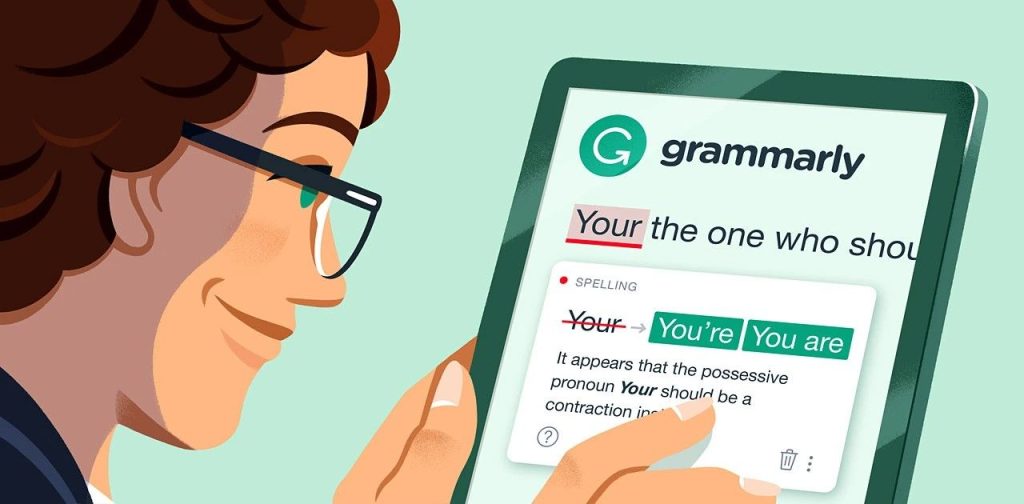No, using Grammarly to check grammar isn’t cheating. Think of it as a helpful friend pointing out typos and awkward sentences millions of students use it every day.
Grammarly mainly fixes punctuation, spelling, and sentence structure. It doesn’t write your essays for you, so your work is still your own.
Whether it counts as cheating depends on your school or university rules. Some are fine with it, while others may have stricter guidelines about writing tools or AI features.
Let’s see why Grammarly is generally accepted in academic writing, and how students can use it safely without crossing any lines.
Is Grammarly Considered Cheating For Students?
The answer to this question is quite simple yet complicated at the same time.

Technically, using Grammarly to proofread and check your content for grammatical mistakes is not cheating.
However, the perspectives differ from person to person regarding the use of Grammarly for writing.
To support the above statement, the latest case from the University of North Georgia raised concerns over using Grammarly.
Marley Stevens, a junior at the University of North Georgia, received a zero grade on a university paper she proofread using Grammarly.
Stevens reported using Grammarly to check her paper for grammatical and spelling errors.
The university flagged her content as AI-written, and the dean accused her of “unintentionally cheating.”
The student was put on probation, and her scholarship was at risk due to the blunder.
This shows that Grammarly must be used according to an institution’s standards and regulations.
How Students Should Use Grammarly?
Grammarly is a valuable tool for writing, and many universities promote its use.
However, students should follow some basic guidelines to avoid their work being flagged as AI-written.
Grammarly Features & How Students Should Use Them:
| Feature | Purpose | Student Tip |
|---|---|---|
| Spelling & Grammar | Fix basic errors | Review suggestions carefully, don’t accept blindly |
| Sentence Clarity | Make sentences smoother and easier to read | Apply suggestions to fit your style |
| Tone Detection | Adjust tone for audience or assignment | Ensure it matches your own voice and assignment guidelines |
| Plagiarism Check | Detect unintentional copying | Cross-check sources and citations, don’t rely solely on Grammarly |
| AI Writing Suggestions | Generate or rephrase text | Use as a guide only; always add your own ideas |
Grammarly suggests and auto-corrects spelling and grammar mistakes without changing the whole meaning of content. However, there are concerns that users may plagiarize content by relying on Grammarly’s suggestions without fully understanding the corrections made. This may potentially lead to unintentional plagiarism.
In addition, over-reliance on Grammarly may hinder essential writing skills, and writers may become dependent on the tool only.
To use Grammarly effectively, students must understand that it is best utilized as a writing assistant rather than entirely relying on it for content.
Is Grammarly Considered AI?
With ever-changing technology, Grammarly has also evolved and now offers AI-powered features.
Besides checking text for mistakes, Grammarly’s newest generative AI feature lets you generate text by providing specific prompts. This feature helps writers pace up their work. However, generative AI is still in its early stages and cannot be relied on for content creation.
To avoid mistakes, students should always review Grammarly’s suggestions before accepting them.
Regarding the case of Marley Stevens, the university has not commented publicly on the AI use claim due to federal privacy laws. Interestingly, the student reported that some of her teachers had encouraged the use of Grammarly in the first place.
Academic Integrity And Grammarly
As the amount of online resources increased over time, finding and copy-pasting information has become a way out for students.
These practices challenge the creativity and ethical values of students and also have an adverse effect on the content quality.
Below, I will answer some queries related to academic integrity and Grammarly.
1. Can Universities Detect Grammarly?
With the abundance of AI detector tools, it is particularly easy to differentiate between human and AI content.
As discussed above, the student from the University of North Georgia who got her content flagged as AI-written claimed she only used Grammarly for editing the content.
The university professor used a popular AI detection tool called TurnItIn to check the content.
After receiving the update, the student passed a message to her peers stating that she should not use Grammarly if your content is going to be checked through TurnItIn.
This just goes to show that no matter which tools you use to generate content, an experienced human or a well-trained AI will detect the use of AI.
2. Is Grammarly Allowed In School?
There is no hard and fast rule about the use of Grammarly in school.
Whether Grammarly is allowed in school depends on your school’s policies and the teacher’s instructions for a particular task.
Since Grammarly is meant to help improve your writing and not replace your own learning. The use of Grammarly in schools needs to have proper protocol and supervision. This will help teachers and students improve their learning process.
In my opinion, Grammarly is a helpful tool and should be used in schools to help students edit and produce quality content.
3. Does Grammarly Affect TurnItIn Results?
No, Grammarly does not particularly affect TurnItIn results.
Since Grammarly specializes in improving grammar, spelling, and sentence structure, it doesn’t rewrite content in a way that resembles plagiarism.
In addition, Turnitin cross-checks the written text against thousands of other massive databases of sources and texts.
As Grammarly does small edits without changing the content, Turnitin will not flag the content as plagiarism if you do not include fake or copied content.
Should Students Stop Using Grammarly?
No, they should not, but students should use Grammarly responsibly and ethically.
Students should understand and abide by the rules for using text editing tools set by their school or college.

Students can use Grammarly mainly for spelling and grammar-checking but should not rely solely on it for content creation.
Here are some tips for using Grammarly ethically and responsibly:
Don’t accept the suggestions directly:
Always analyze the suggestions, understand the grammar rules, and learn from them.
Use Grammarly to identify areas of improvement:
You can improve your writing skills by taking in suggestions for improving sentence structure and word selection.
Don’t forget your writing style:
Don’t rely too much on Grammarly’s suggestions, as they do not always fit the context of an article and change the meaning of sentences.
Grammarly should not rule over your writing style:
Don’t become dependent on Grammarly’s suggestions. Maintain your own writing style and keep improvising.
Use Grammarly as a learning tool, not a shortcut:
The focus should be on improving your own writing skills, not replacing them with automated corrections.
Be aware of institutional rules:
Some schools or universities may have restrictions on AI-assisted writing tools. Students should always follow those policies.
Related Reads:
Final Verdict: Grammarly Helps Improve Grammar Without Cheating When Used Responsibly!
Grammarly is a handy tool for students to improve grammar and make writing clearer. Used responsibly, it helps refine your work without replacing your own effort.
Relying too much on it, however, can limit learning and even risk accidental plagiarism. Treat its suggestions as guidance, not a shortcut.
Think of Grammarly as a writing coach, apply its advice thoughtfully, keep your own voice, and use it ethically to create polished, human-written content.